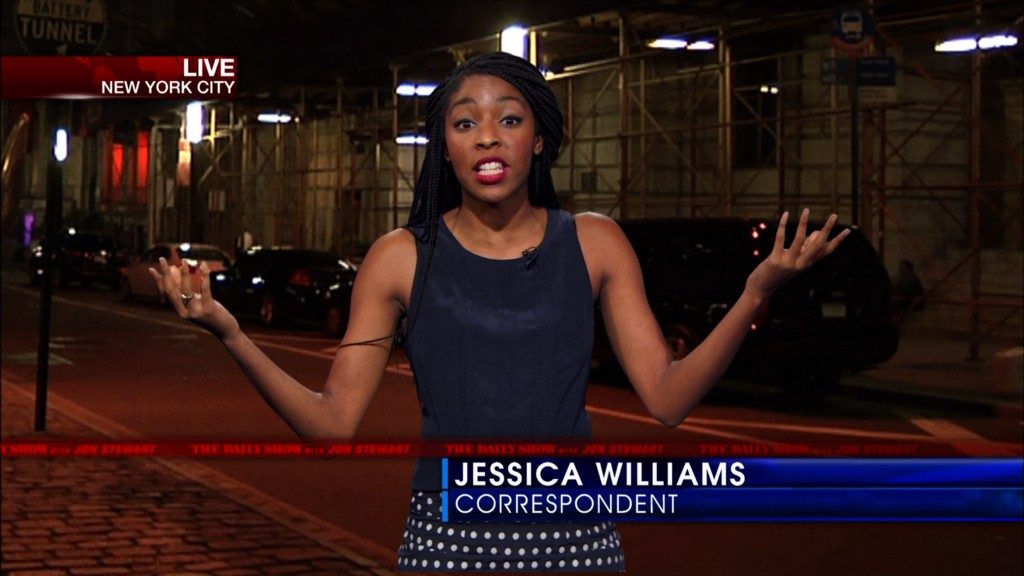Women and Hollywood’s end-of-year coverage includes our “Best Women-Directed Documentaries of 2014 (That We Managed to See),” “Best Women-Directed Films of 2014,” “Best Films About Women in 2014,” “Best TV Shows and Moments of 2014,” and “Most Important Feminist Film Moments of 2014” lists.
Some of the year’s most important feminist progress in film and TV were made by or involved women of color. Here’s a look back at ten essential milestones and achievements by black, Latina, Asian, and Native American women in 2014:
Black women directors have a banner year. Three exceptional and very different films from female filmmakers of color made our “Best Films About Women in 2014” list: Ava DuVernay’s Selma, Amma Asante’s Belle, and Gina Prince-Bythewood’s Beyond the Lights. We’re crossing our fingers for DuVernay becoming the first black woman to be nominated for a Best Director Oscar, and we can’t wait to see the films this extraordinarily talented trio make next.
Shonda Rhimes becomes TV’s most powerful showrunner. After Shondaland’s takeover of Thursday night on ABC, there’s no doubt that Rhimes has become the small screen’s most important writer/creator/producer — an achievement that’ll be honored by a lifetime achievement award from the WGA next year. But Rhimes didn’t just take over a programming block at the alphabet network. How to Get Away With Murder (produced by Rhimes, created by Peter Nowalk) sparked larger cultural conversations about black women, black hair, and gay sex with through frank depictions thereof, while finally giving the exquisitely talented Viola Davis a lead part in a project everyone’s watching.
Sasheer Zamata gets hired on SNL. 2014 started with a victory: the hiring of Sasheer Zamata at one of the comedy world’s biggest institutions. What’s most amazing isn’t that she’s the first black comedienne on the sketch show since 2007 — that was simply overdue — but that it was a months-long grassroots campaign waged in the media and on Twitter that finally convinced Lorne Michaels to take one more step toward making SNL cast-membership actually reflect the reality it satirizes.
Jessica Williams kills it on The Daily Show. Williams brought a much-needed feminist perspective this year to the ever-diversifying Daily Show via segments on street harassment and campus sexual assault. As our TV critic Sara Stewart so astutely points out, Williams offers something different from her female predecessors, the (too rarely seen) Kristen Schaal and Samantha Bee: “Instead of the world-weariness with which sexism and racism are often covered on this show, Williams conveys a new, angered astonishment — the type that, perhaps, one can only genuinely demonstrate when one is this young [Williams is 24] — that this shit is still going on.”
Latinas enter primetime. The CW’s Jane the Virgin is one of the 2014–15 TV season’s best new shows, a pitch-perfect blend of heart, humor, and telenovela twists that boasts one of the most diverse casts on the small screen. Thankfully, Jane isn’t alone, but joined by another new fall show with a Latina protagonist: ABC’s Cristela, a sincere throwback as comforting as chicken noodle soup, but with an unmistakably Tex-Mex flavor.
Laverne Cox becomes the first trans woman to land an Emmy nod and the cover of Time Magazine. The trans movement made huge strides in visibility and mainstream acceptance this year, with two women of color leading the charge: author Janet Mock and actress Laverne Cox. It’s refreshing to see racial and gender diversity within the queer community, and it’s thrilling to see Cox recognized for her heartbreaking performance on Orange is the New Black.
Orange is the New Black enjoys a triumphant second year. I’ll be the first to admit that I was nervous about OITNB’s sophomore season: the series’ first 13 episodes were so freaking great I wasn’t sure if Jenji Kohan and her writing staff could keep up with themselves. I’m happy to say that my worries were entirely unfounded; OITNB gave us another brilliant (and dazzlingly diverse) year, with standout storylines for Suzanne (Uzo Aduba), Taystee (Danielle Brooks), Gloria (Selenis Leyva), Black Cindy (Adrienne C. Moore), Poussey (Samira Wiley), and the unforgettable Vee (Lorraine Touissant).
Zoe Saldana is color-blind cast in Guardians of the Galaxy. Given the monochromaticism of Marvel and DC’s movies (which is more egregious in the big-screen adaptations than in the original comic books), it was encouraging to see Zoe Saldana co-star in the year’s biggest movie, cast presumably based on her talent and sci-fi fanbase rather than on the color of her skin. Though Saldana is green in the movie (she plays the alien warrior-babe Gamora), the diversity she brings to the cast — and the Caribbean features under the emerald make-up — are both apparent and wholly welcome.
An Anna May Wong biopic is announced. One of Hollywood’s first Asian-American stars will finally receive her due — though sadly not from Hollywood — in a Chinese biopic currently in development. An ambitious performer who battled the film industry’s racism and sexism for decades, the LA-born Wong was passed over for a lead part as a Chinese woman in The Good Earth for German actress Luise Rainier in yellowface, who later won a Best Actress Oscar for the role. Wong’s story isn’t just compelling, but a crucial component of the history of Hollywood — and thus deserves to be told.
Sydney Freeland’s Drunktown’s Finest becomes a festival darling. We’re still waiting for a release date for Drunktown’s Finest, first-time director Sydney Freeland’s debut about life in a Native American reservation. In the meantime, we’re enjoying the glowing reviews for the tri-sected drama, which follows three central characters: an adoptee raised by white parents away from the reservation, an unready father-to-be drinking away his anxieties, and a self-assured trans woman mired in prostitution. If Drunktown’s Finest is what we can look forward to in 2015, we’re more than ready for next year.







